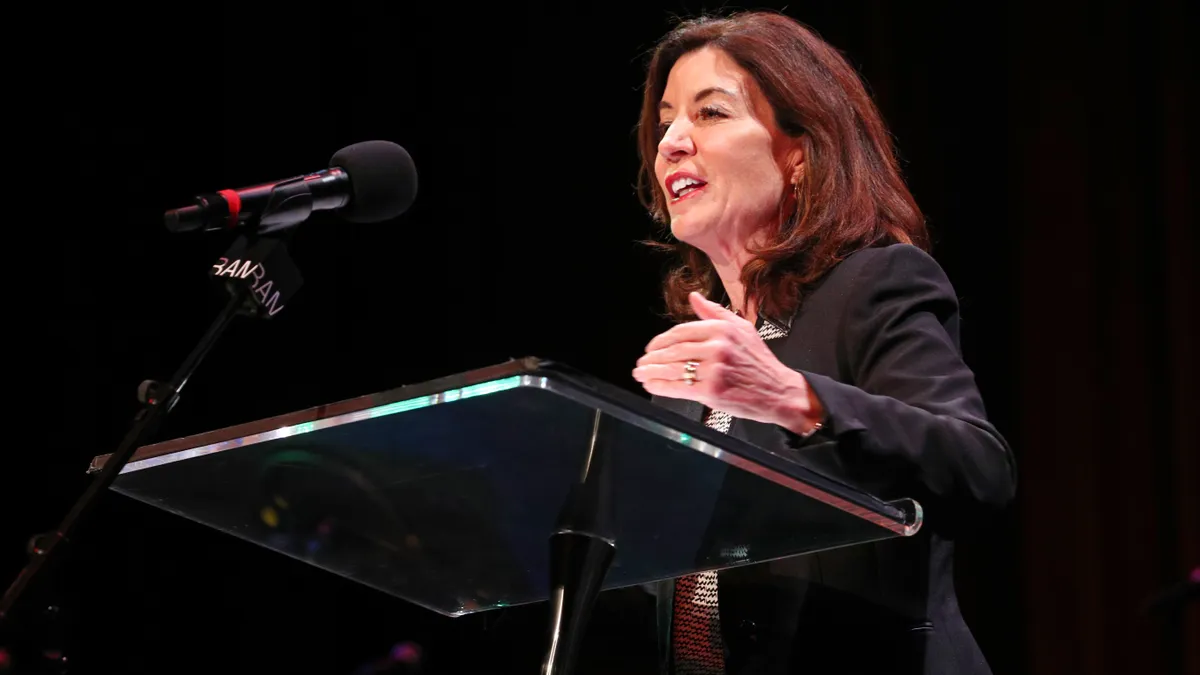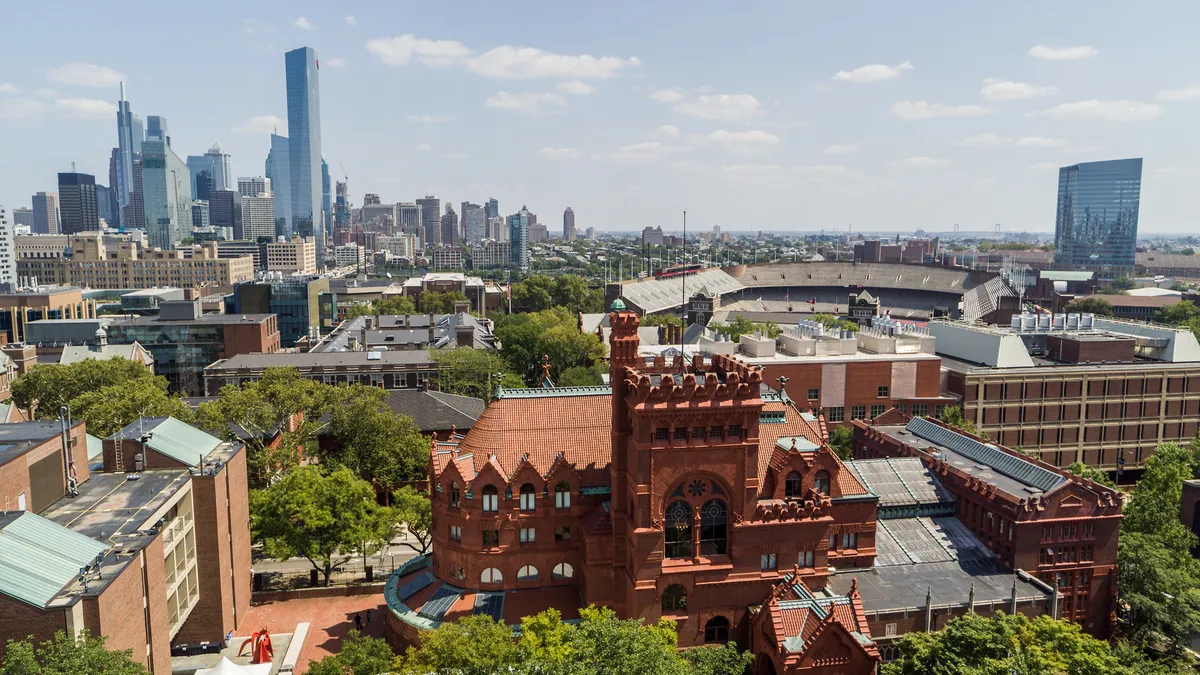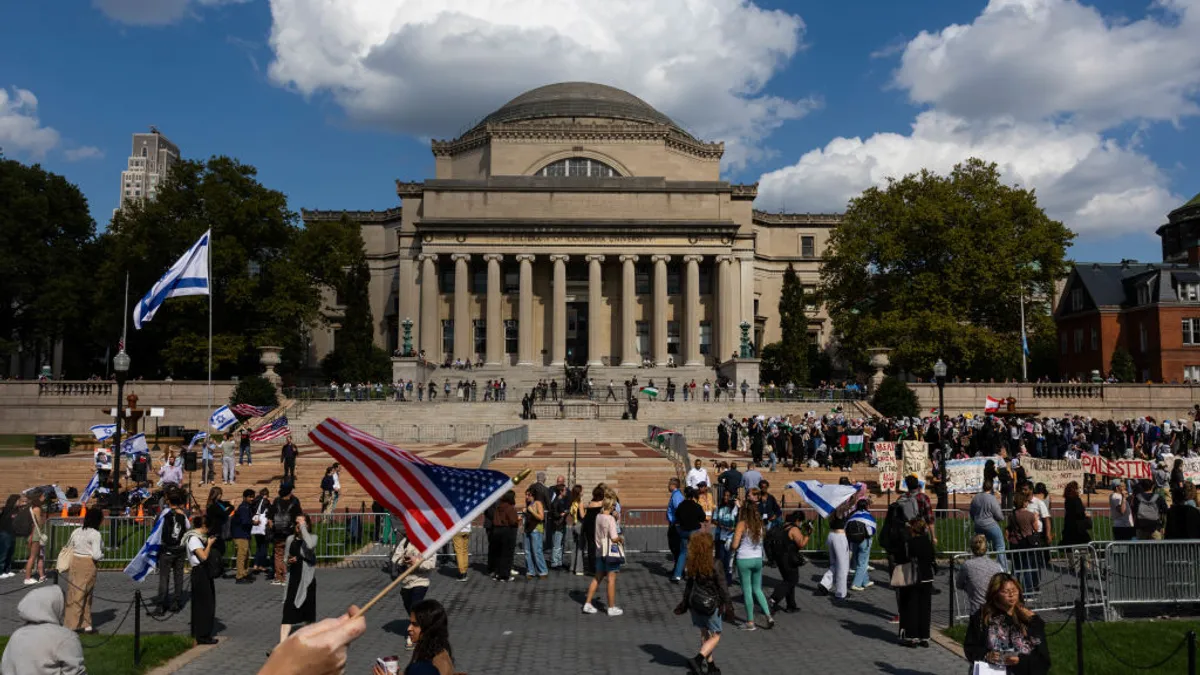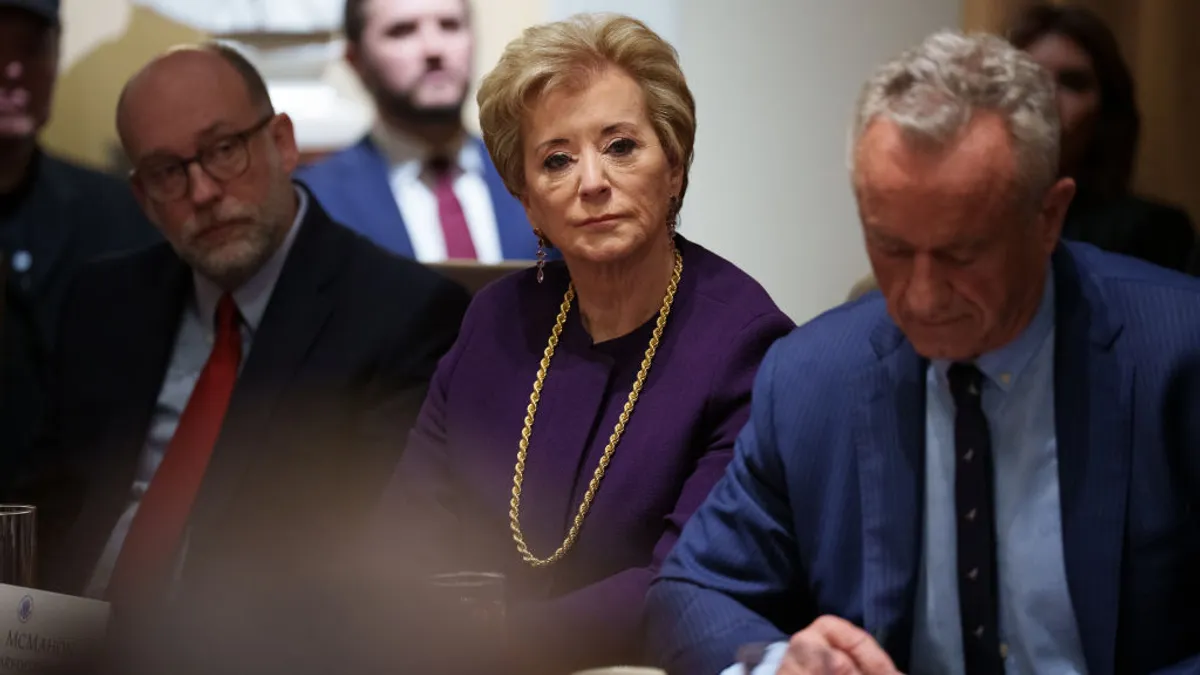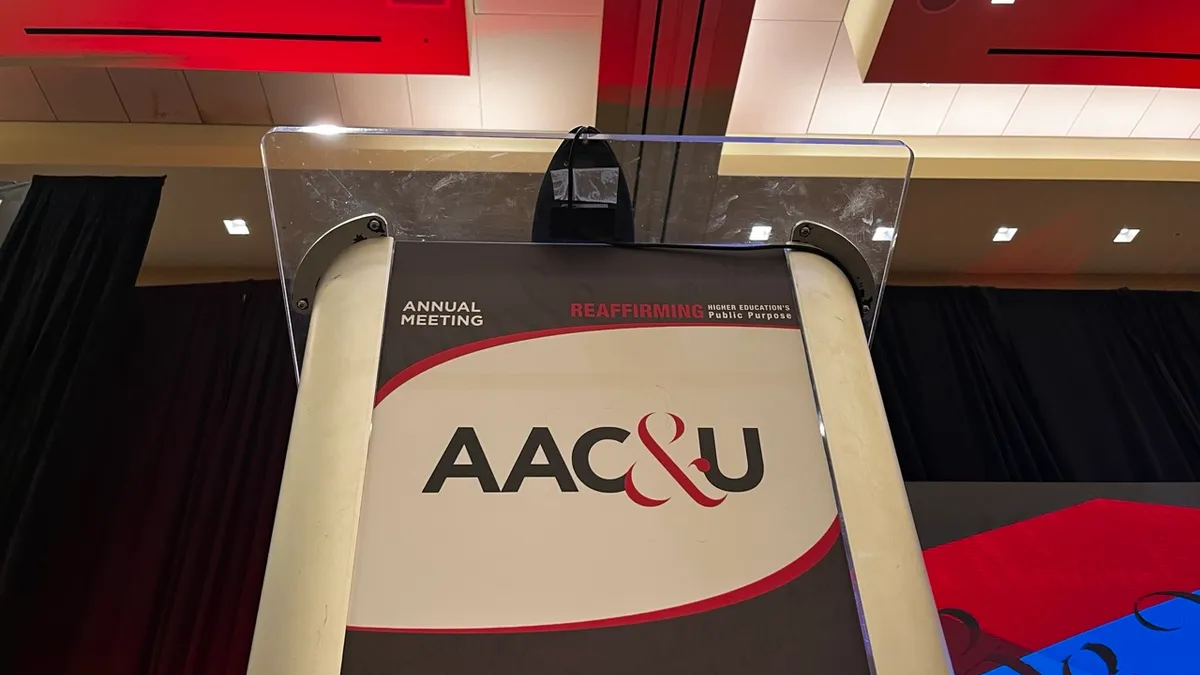Last week, presidents of three of the nation’s most illustrious colleges drew torrential scorn after they declined during a congressional hearing to definitively say that calls for Jewish genocide would violate their campus rules.
Claudine Gay of Harvard University, Elizabeth Magill of the University of Pennsylvania, and Sally Kornbluth of the Massachusetts Institute of Technology were addressing the spike in antisemitism that college campuses have experienced since the Israel-Hamas war reignited in early October.
The presidents said promoting genocide would only infringe on campus policies if the speech crossed the legal line into harassment — a sentiment widely derided, even though civil liberties scholars agreed with it.
But New York’s governor, Kathy Hochul, had a different legal take. The Democrat wrote a letter to New York’s college presidents over the weekend, informing them that a call for genocide would violate state law and Title VI of the Civil Rights Act of 1964, a federal antidiscrimination law.
“I assure you that if any school in New York State is found to be in violation, I will activate the State’s Division of Human Rights to take aggressive enforcement action and will refer possible Title VI violations to the federal government,” Hochul wrote, arguing the Harvard, Penn and MIT presidents failed to forcefully denounce antisemitism.
The clash illustrates the minefield colleges now face trying to preserve free speech while stemming prejudicial acts. Colleges constantly attempt to strike this balance, but the dynamic is on full display as the public — and policymakers who control government purse strings — demand consequences for rising antisemitism.
The hearing already cost one president her job, as Magill resigned over the weekend. Calls for the other two leaders to step down persist.
A contentious hearing
The presidential trio spoke at a hearing of the House Committee on Education and the Workforce, one of several Congress has hosted on campus antisemitism since Hamas, a militant group the U.S. government has deemed terrorists, attacked Israel on Oct. 7. Israel responded by declaring war.
The strife has trickled into U.S. colleges, where demonstrations and other incidents have transfixed the public and generated significant political blowback. The Biden administration has opened several investigations into antisemitic complaints at colleges, including at Penn and Harvard.
During the hearing, a lawmaker asked all three presidents whether a demand for Jewish genocide would constitute a rule violation. They each answered similarly — that discipline could come when words morphed into conduct, such as threats against an individual.
Legal experts backed this interpretation. The Foundation for Individual Rights and Expression, a civil liberties watchdog, wrote on social media Monday that “the First Amendment protects advocacy of violence, so long as it doesn’t cross the line into unprotected conduct or speech like incitement or true threats.”
“These narrow, well-defined exceptions protect individuals from immediate threats to their physical safety, without risking a widespread crackdown on dissenting or unpopular speech,” FIRE wrote.
But legal nuance was lost in the outrage. The presidents’ perceived equivocation angered House Republicans, who opened their own investigation into Harvard, Penn and MIT.
Piling onto their troubles, the universities’ advisers, alumni, donors and even the White House condemned their testimony. Magill backtracked her stance before announcing her resignation Saturday, making a public statement that Penn should examine its free expression policies.
But political pressures — and threats of donations being snatched back from Penn, including one to the tune of $100 million — forced Magill out. Penn’s governing board chair also resigned over the weekend.
Others, including dozens of federal lawmakers, have since demanded Gay’s and Kornbluth’s resignations. More than 650 Harvard faculty members have come out in support of Gay, however, saying in a letter that firing her would be capitulating to partisan forces.
What does this mean for New York?
Hochul too heaped criticism onto the college presidents in her letter, writing their responses shocked her.
She contacted the State University of New York, the country’s largest comprehensive public system, to confirm that a call for genocide would violate SUNY’s conduct code and would lead to “swift disciplinary action,” according to the letter.
SUNY Chancellor John King Jr., a former U.S. education secretary, confirmed that was the case, Hochul wrote. The City University of New York system’s leader, Félix Matos Rodríguez, said the same, she added.
“I write to you to ensure that your institution applies the same standard in its code of conduct, and has a clearly defined and well publicized mechanism for individuals to report complaints,” Hochul wrote to college presidents in the state. “I want to reinforce that colleges and universities not in compliance with federal and state laws protecting students against discrimination can be deemed ineligible to receive state and federal funds.”
FIRE, the free expression group, disagreed with Hochul’s letter.
A ban on calls for genocide would be “impossible” to enforce and would stifle political debate, the group wrote on social media on Sunday. The word “can be used hyperbolically, figuratively, symbolically, or satirically, and even if meant literally, it’s a contested term,” FIRE wrote.
“In this fraught moment, colleges and universities must ensure student safety and well-being by taking action against violence, true threats, incitement, discriminatory harassment, and other unlawful activity,” it wrote. “But they can and must do so without violating expressive rights. FIRE will be watching closely.”



